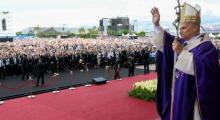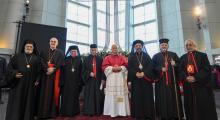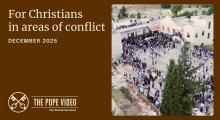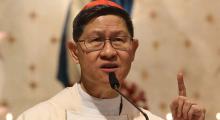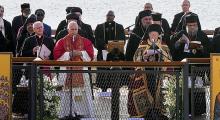Issued by the Catholic Center for Studies and Media - Jordan. Editor-in-chief Fr. Rif'at Bader - موقع أبونا abouna.org
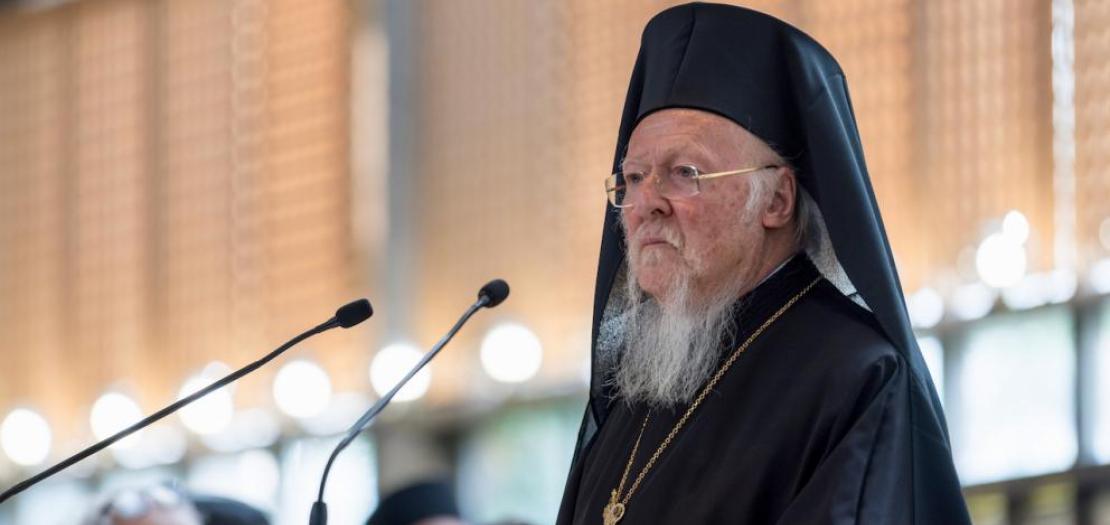
Speaking in a city “whose stones still bear the echo of centuries where the oecumene was defined not as a geographical expanse but as a spiritual horizon,” His All Holiness highlighted the Ecumenical Patriarchate’s role as a witness to Orthodox Christianity’s universal calling. He identified the underlying crisis facing humanity as not merely economic instability or technological advancement but a “dominant, usually unavowed, worldview”—a reductive materialism that ignores the sacred dimension essential to human flourishing.
He cited Saint Gregory of Nyssa, saying: “It is impossible for anyone to ascend to that height where the light of truth is seen, unless the dead and earthly garment of skins is stripped away from the foundations of the soul… This is truly that which really exists, and the understanding of this is the knowledge of truth.”
Ecumenical Patriarch Bartholomew described the consequences of this worldview as deeply existential and social. He asserted that interreligious dialogue is not a luxury but “an inexorable necessity, an act of collective resistance” against the fragmentation of meaning in the modern world.
The Ecumenical Patriarch stressed the importance of bridging faith and science, drawing on quantum mechanics and biology to challenge mechanistic views and invite a “new natural philosophy” harmonizing scientific and spiritual quests.
Addressing two urgent global crises—the debt crisis and the rise of artificial intelligence—he highlighted their common root in materialistic abstraction and utility. The debt crisis enslaves nations and denies human dignity, while artificial intelligence risks reducing humanity to data, threatening freedom and creativity.
Ecumenical Patriarch Bartholomew emphasized the need for religious communities to offer positive alternatives: solidarity and justice against economic abstraction, and the defense of human dignity against technological reductionism. He called for an ethics of technology based on compassion, responsibility, and respect.
“We meet in essence not when our theologies coincide, but when our communities share bread with the hungry, care for the sick, defend the wronged. Unity is forged in the common resistance to the forces that attempt to efface the human face.”
The Ecumenical Patriarch concluded with a call to action: “We are not called to compose a new global religion of consensus. We are called, each from the standpoint of his faith, to constitute a global alliance of conscience, a prophetic testimony that will keep open the horizon of transcendence in a world threatened with asphyxiation within the confines of the material.”


